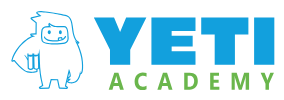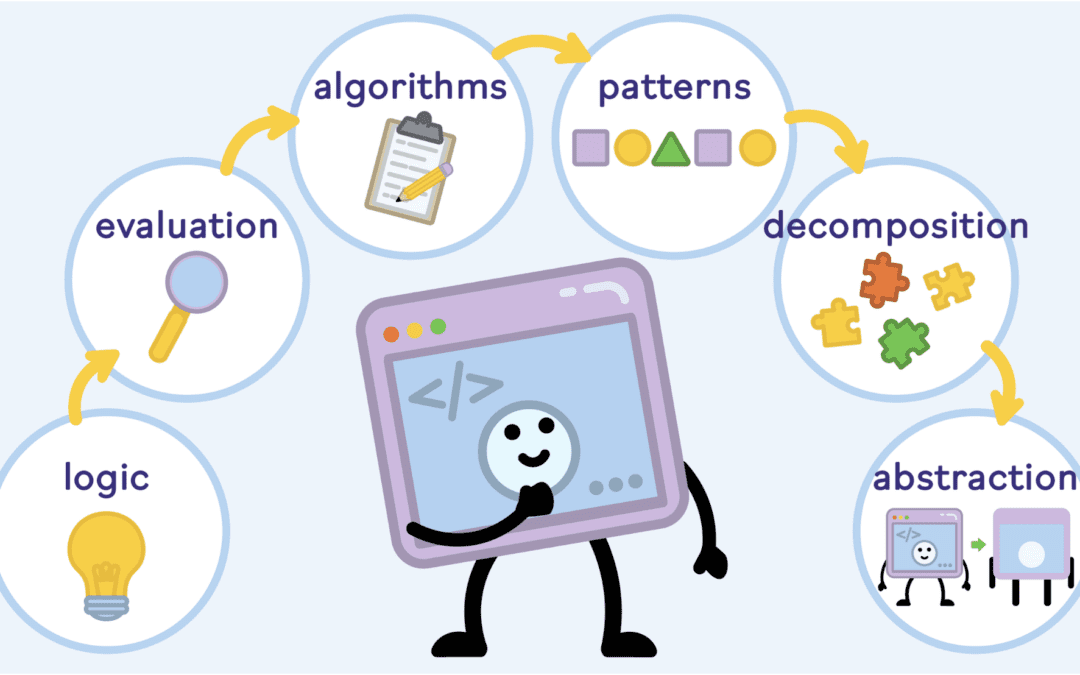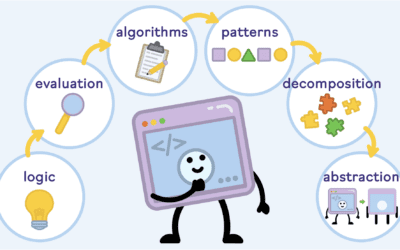
Coding is an increasingly important skill in nearly every industry. With the recent focus on STEM education, elementary schools throughout the country are adding or expanding their coding curriculum.
However, many teachers and parents wonder whether students should really be learning to code this young. After all, elementary school days are already busy with lessons in math, English, social studies, basic science, and the arts. Wouldn’t it make sense to introduce coding later, after kids have mastered those other basics?
The truth is, coding teaches a mental skillset that helps elementary school students with every other aspect of education. Here’s how:
Coding Teaches Vital Critical Thinking Skills
Contrary to what many adults think, coding is about far more than learning how to accurately type lines of code. It is much more about using critical thinking to decide how to approach a problem and develop a solution.
As Steve Jobs once said, “Everybody in this country should learn to program a computer because it teaches you how to think.”
As coding students work on increasingly complex problems, they learn to think about how to conceptualize a problem, which information is important to the task at hand, and how to analyze and synthesize that information to come up with a solution. Those critical thinking skills lend themselves to virtually every situation they will encounter throughout their lives.
Coding Projects Develop Resilience and Grit
The farther you get in coding, the harder it is to get everything right on the first try. Problems are bound to arise from typos or failed problem-solving. When that happens, though, coders don’t give up: They try and try again until they succeed.
The key to coding isn’t to be a perfect thinker or typist, but rather to identify and learn from your mistakes. Coders figure out where they went wrong, solve the problem, and bounce back.
Kids who learn to code know that initial failure doesn’t have to be final; “debugging” is just part of the process. They’re bound to carry that mindset of resilience and grit to other aspects of their life, which can only help as they grow up and encounter new challenges.
Coding Encourages Creativity
Coding students frequently have the opportunity to design something themselves and come up with their own solutions from a vague project idea. They can experiment with different ideas and different ways of approaching a complex problem.
Best of all, coding students get to see the results of their work, sparking the motivation to keep creating.
Coding Boosts Math Skills
Coding is a very logical and math-based skill. Programming students must learn to organize data and use their calculation skills so they can express their intentions in a way a computer can understand. Younger students can use kid-optimized programming languages or block-based programs to learn the basic concepts; older students can use their math skills to try coding in real-life languages.
Often, coding students improve their math skills without even realizing it, just by continuing to practice solving coding problems.
Coding Helps Children Practice Problem-Solving and Project Design
Coding teaches students how to break down a project into smaller, more manageable components and use logic to solve problems. Those skills are incredibly valuable in nearly every aspect of life, not just in school.
Whether students are applying logic to their math and science lessons, working on a long-term group project, or dealing with real-life problems, problem-solving skills are bound to come in handy. The earlier children learn these skills, the more they will help them along in life.
Coding Teaches Children About Cause and Effect
Tweaking a piece of code is one of the best ways to show a child how cause and effect works. Even a tiny change, such as a missing period, can have a dramatic effect on how or whether your code works.
In learning to code, elementary students come to understand a fundamental principle of how the world works that will help them approach many other aspects of the world.
Coding Gets Kids Comfortable With Technology
Coding helps kids become familiar and comfortable with technology in a way they otherwise wouldn’t be. Not only are they using computers as they learn, but they are also learning how those computers work.
Learning to code can forever change the way students see technology. The mysterious backend workings of a website or app start to seem much more approachable when a child realizes they already know how they could code some of the features they see.
Best of all, when kids know they are capable of learning how technology works, they are far less likely to be intimidated by any unfamiliar technology that is introduced in the future.
Elementary Students Are Excited to Learn to Code
Most elementary students love coding. It’s challenging but doable, with plenty of opportunities to be creative, see the fruit of your labor, and take pride in the projects you make at every level.
Ask any classroom of elementary coding students whether they like to code, and you’re sure to get a lot of enthusiastic yeses.
A Coding Curriculum Prepares Children for the Future
In the 2020s, computers have taken over virtually every industry. An increasing number of businesses in every sector rely on computers, and usually for far more than just a functional company website.
Children who learn to code will have an advantage over their peers who don’t. They will develop a valuable skillset that opens up more job opportunities for them, no matter which industry they decide to enter.
How to Create an Elementary Coding Curriculum
Yeti Academy is an online resource that can help elementary schools develop a STEM curriculum. Our flagship coding module, Yeti Code, presents a unique learning opportunity for both beginning and advanced students to learn to code through single and multi-player games. We also offer other project based STEM modules on computational thinking, Google Suite, Digital Literacy, Science and more for grades 3-5 and 6-9 with all the teacher resources you could ever need.
Are you interested in trying Yeti Academy? Sign up for a free account today!








